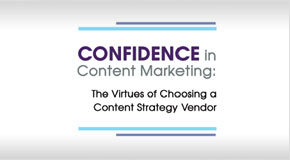The recent debacle surrounding the National Security Agency (NSA) and the collection of data on citizens all over the world has left a sour taste in the mouth of consumers. Right now, the country is split on the matter of who should be allowed to collect information on them, and what it should be used for.
For marketers, this is posing a great problem. Consumers want relevant advertisements tailored to cater to their tastes and interests. A fan of the Walking Dead, for instance, wants to see commercials about the Walking Dead. Households who religiously consume Skippy peanut butter do not want to see advertisements for Peter Pan on their television. They are afraid, however, that your organization might start to resemble Wayne Enterprises at the end of the Dark Knight—with an entire room of cameras tracking their every move.

In order to create these custom-driven advertisements, marketers need to collect personal information. They need to know which demographic to sell their product to. They do this by collecting meta-data.
Marketing agencies need to know how many times a consumer clicks on advertisements, watches a television show or reads a blog post. If a consumer keeps coming back, there is a good chance that they are interested in a product. There is no point in marketing a product to a demographic that shows little interest in a product or service.
So, is there a balance that can be drawn in the middle? Or is it a polarizing issue that companies should stay away from altogether? The answer to this problem, according to Macy’s Senior Vice President of Customer Strategy Julie Bernard, is for executives to take a stand and defend their company’s policy for collecting consumer information. However, its should be done responsibly.
"There's a funny consumer thing," she said. "They're worried about our use of data, but they're pissed if I don't deliver relevance… How am I supposed to deliver relevance and magically deliver what they want if I don't look at the data?"
The importance of this can be seen when taking into account how much thought a consumer will place into a purchasing decision before ever talking to a sales team. In fact, 57 percent of the purchasing process is done prior to speaking with a sales associate. If there is no targeted information directed at a consumer, companies stand a big chance of losing out during the crucial early marketing stages.
According to Bernard, there is an “art and science” when it comes to data-driven marketing. There is a fine line that companies should not cross, but at the same time the right to collect information is a business necessity. She explains that just because you can collect information on every consumer, it does not mean you should. Doing so could in fact be harmful to business.
The responsible thing to do is to inform your customer base about the information that you collect, and why you are collecting it. Be upfront, and share as much information with them as you can. That way, they do not hear about the collection from a third party. In this situation, honesty is the best policy.
Edited by
Brooke Neuman















